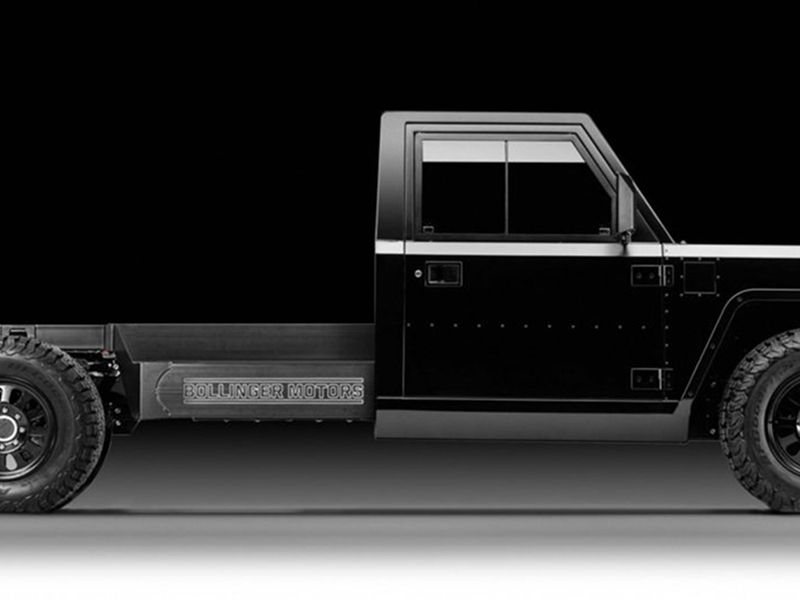
Bollinger Motors, a suburban Detroit electric truck startup, plans its first deliveries of four models next year, the company said Friday at a virtual work truck show.
CEO Robert Bollinger says he has lined up “a number of” manufacturing partners to assemble the trucks and chassis-cab models his engineers have designed. Agreements with subassembly partners have been signed; a final assembly company will be named soon, the company said.
Launching at the same time in 2022 will be the B1 SUV, the B2 electric medium-duty pickup and two chassis-cab models. Those chassis-cab vehicles will be offered to fleet customers who buy the fully engineered chassis and send them to up-fitters for installation of custom bodies.
This is a segment where Bollinger will have little and maybe no competition, at least initially. Its Class 3 electric chassis-cab models appear to be the only ones available.
During a filmed presentation shown at the NTEA Work Truck Show, held virtually this year, Robert Bollinger detailed the chassis-cab models that could be used to underpin ambulances, airport tugs, box trucks, dump trucks, defense vehicles and other types of work vehicles.
The B2 Chass-E Cab will be offered in rear-wheel drive, dual rear-wheel drive and all-wheel drive, with prices from $70,000 to $100,000, while the shorter wheelbase Chass-E will be priced from $55,000 to $80,00 and also come in rwd, dual rwd and awd. The Chass-E is the platform that is used for the B1 and B2 consumer vehicles.
While Bollinger might not have much competition initially from other electric vehicle manufacturers for his chassis-cab models, the company will be taking on Detroit’s automakers, which each year sell tens of thousands of gasoline- and diesel-powered chassis cabs to fleets and industries.
“With our new rwd and dual rwd variants, we’ll be able to offer a whole range of options to commercial fleets looking to electrify. We’re making three versions to cover a wide range of needs for the commercial and government markets,” Bollinger said.
The company’s financing is still unclear. Bollinger has said in the past he does not want to follow other EV startups and merge with a special-purpose acquisition company, or SPAC. Bollinger, who made his fortune in the personal care industry, has been personally funding development of the company’s EVs.
Last year, the company inked a deal with Detroit-area retailer LaFontaine Automotive Group to sell and service its vehicles.